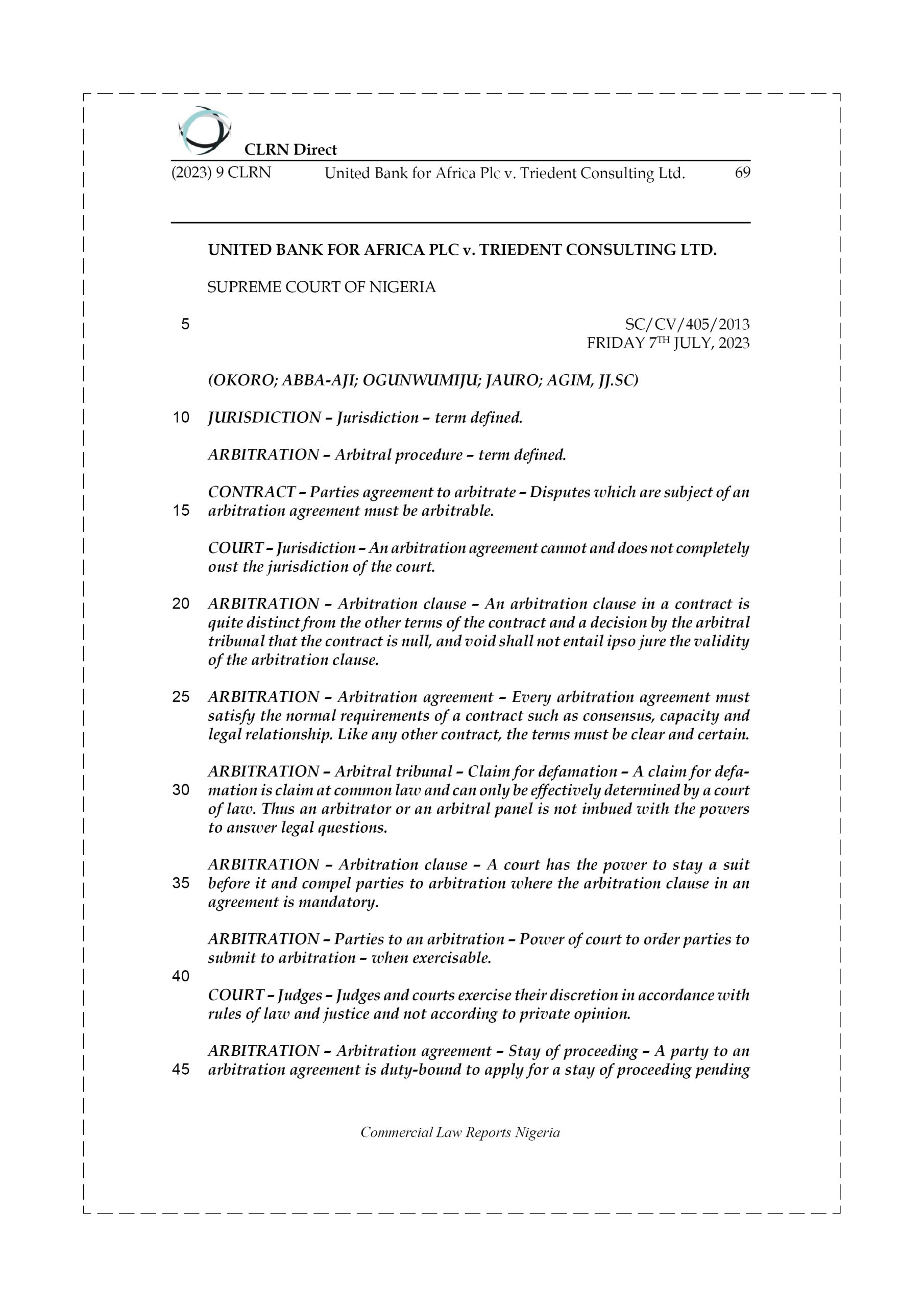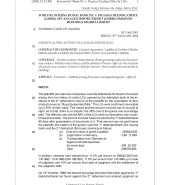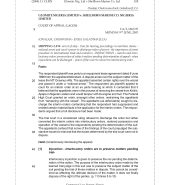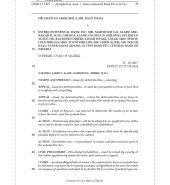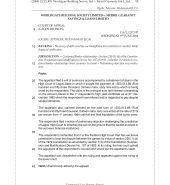-

NDIC v. Okem Enterprises Limited & Anor
- kg
1 × ₦1,000
UNITED BANK FOR AFRICA PLC v. TRIEDENT CONSULTING LTD.
₦1,000
In Stock
Facts:
The Appellant and the Respondent were parties to a written contract which stated that it may be terminated by the Appellant upon notice given to the Respondent and in such event, the Appellant would pay money due under the agreement. The Appellant terminated the agreement and asked the Respondent to present all its invoices outstanding for payment. The Respondent presented its invoices to the Appellant. After a meeting between parties, the Appellant asserted that the Respondent was already overpaid by the Appellant. The Respondent also felt that the words in the letter terminating the agreement, which the Appellant copied to a third party, were defamatory of it. Consequently, the Respondent instituted an action against the Appellant at the High Court.
Upon receipt of the originating process, the Appellant applied for a stay of proceedings pending arbitration under section 4 of the Arbitration and Conciliation Act, Cap. 19 Laws of the Federation, 1990. The Appellant relied on the arbitration clause in the agreement that the parties would use their best endeavors to amicably settle any dispute arising from the agreement, failing which resort would then be made to arbitration in accordance with the Arbitration and Conciliation Act or any statutory provision or re-enactment thereof for the time being enforced. The Appellant, however, did not attach a notice of arbitration to its application. The Respondent opposed the application by filing a counter affidavit and a written address. The trial court held that the Respondent’s claims were not within the arbitration agreement and should not be referred to arbitration. It also found that the arbitration clause was not the type of arbitration clause that survives the termination of a contract. In the end, the trial court dismissed the Appellant’s application.
On appeal, the Court of Appeal (lower court) held that the trial court erred in holding that the termination of the contract between the parties also terminated the arbitration agreement when inexorably the termination of the former made the latter operative. The Court of Appeal, however, found that not all the issues submitted to the trial court were arbitrable. Furthermore, it held that the Appellant ought to have shown its willingness and readiness to arbitrate as required under section 5 of the Arbitration and Conciliation Act to enable the trial court to order a stay of proceedings. Consequently, the Court of Appeal affirmed the trial court’s refusal to grant a stay of proceedings and dismissed the appeal. Aggrieved, the Appellant further appealed to the Supreme Court. The Respondent also cross-appealed on some aspects of the judgment of the lower court.
